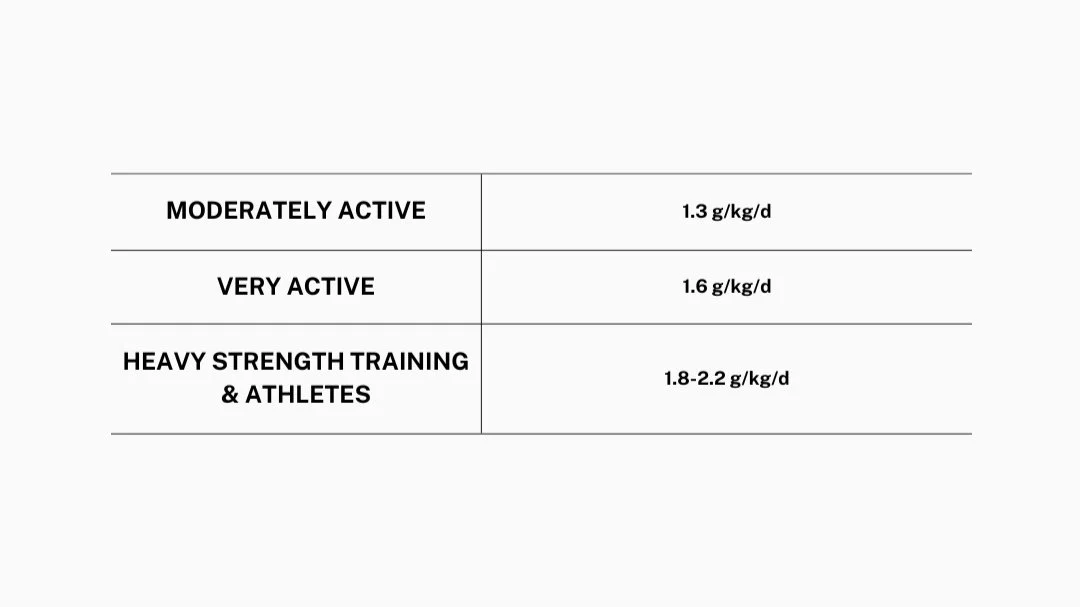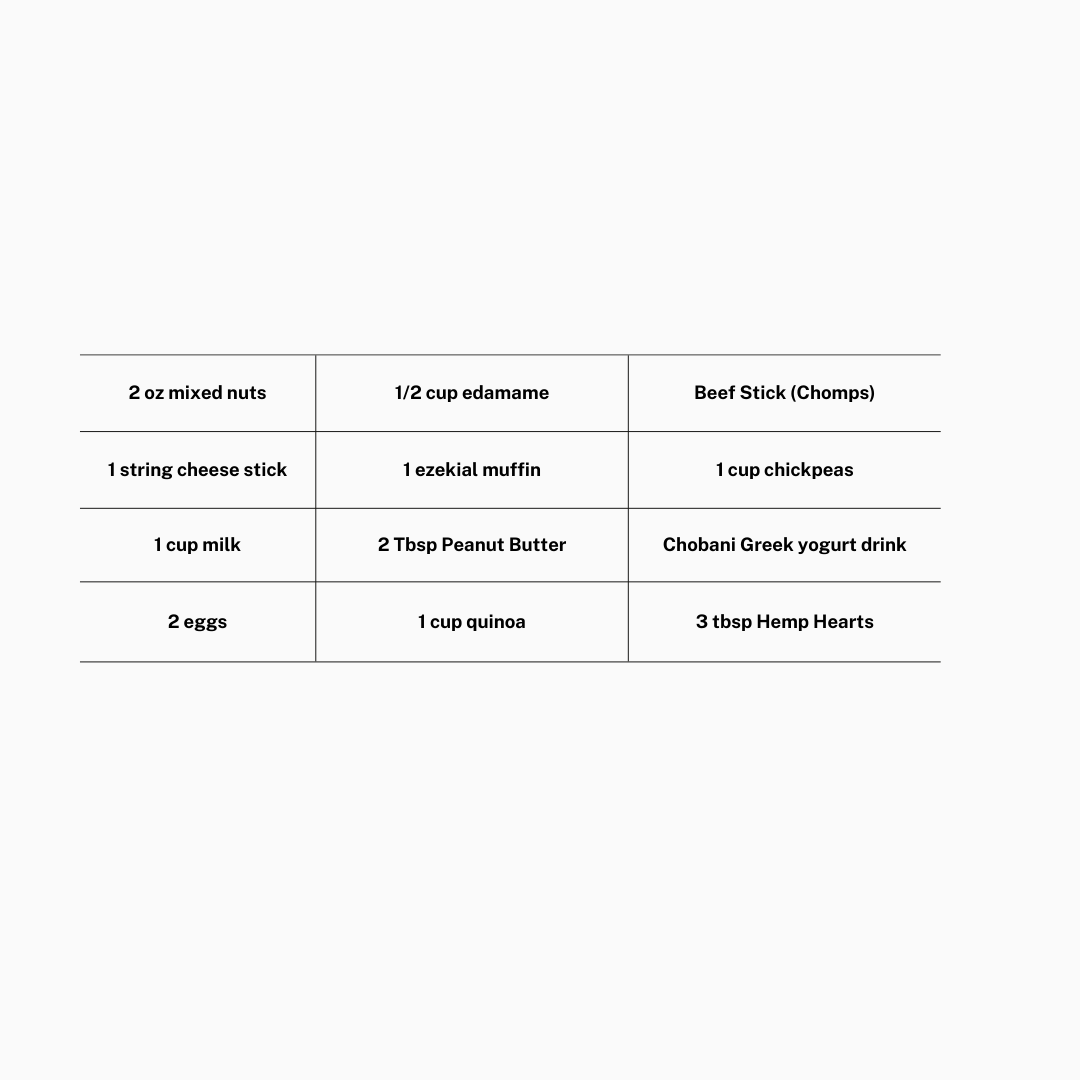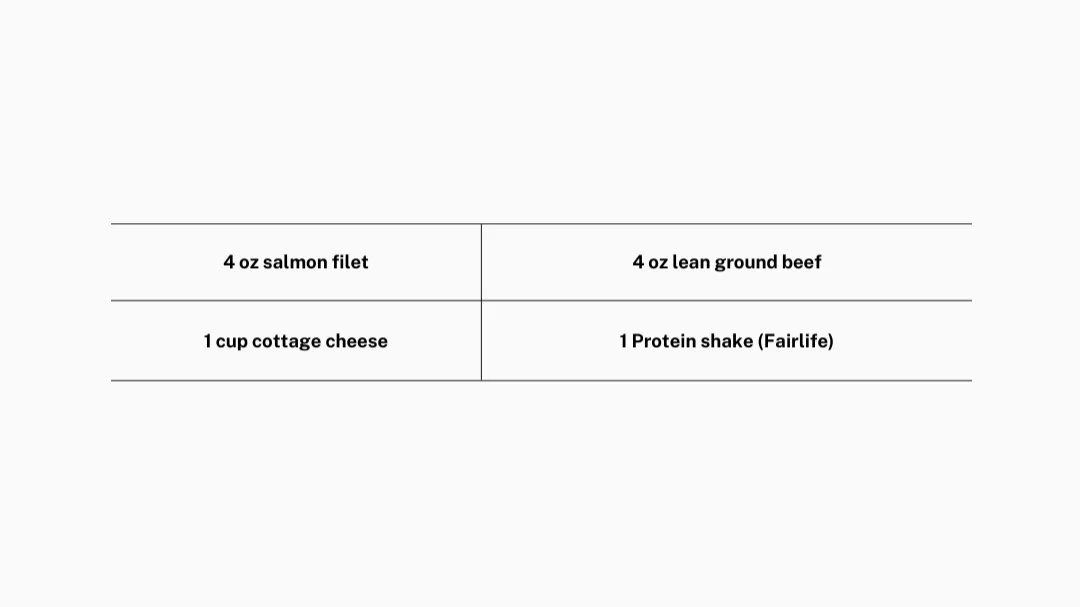“How much protein should I be eating?”
A popular question that seems to be on the minds of everyone! The idea of eating your body weight in grams of protein has gone viral, but it’s not based on what most people actually need… so let’s talk about it!
Why is protein important?
Protein plays a crucial role in numerous bodily functions. It is essential for the repair and building of muscle tissue, enabling us to maintain strength and recover from exercise and illness. Protein also significantly impacts hormone production and regulation by providing the necessary amino acids to synthesize various hormones like estrogen, testosterone, and insulin. It helps regulate blood sugar levels, preventing spikes and crashes through slowing down the release of sugar into the bloodstream. Protein promotes satiety, helping us feel full and satisfied after meals which can aid in weight management. Finally, protein supports our immune system by producing antibodies and other immune cells, enhancing our ability to fight off infections. Consuming adequate protein ensures that these processes can take place and promotes optimal health.
How much protein do I need?
The recommended daily allowance (RDA) for protein is 0.8 grams per kilogram of body weight per day. While this is the amount needed to meet basic nutritional requirements and prevent deficiencies, it is not necessarily optimal for everyone. For example, protein needs may increase for athletes, individuals recovering from injuries/surgeries, individuals with chronic or acute illness, weight loss, pregnancy, aging, and the list goes on!
With that said, keep in mind that more protein isn’t always better! Studies show that beyond 2.2 grams per kilogram per day, the body doesn’t use extra protein efficiently. While some elite athletes or bodybuilders might need more, the “1 g/lb” rule is overkill for most. Oftentimes in practice I see individuals trying to focus too much on protein and miss the importance of the other macronutrients.
Protein-rich Food Sources
Looking for other high-protein options besides a scoop of protein powder? Here are 20+ high-protein food sources you can incorporate to boost your protein intake!
10g
20g
30g
40g
Wrap Up!
We know that protein is just one piece of the puzzle. Consider pairing these high-protein foods with a carbohydrate and fat to make the perfect balanced snack and meal. Depending on whether you’re looking to add more protein to a snack or building your lunch plate, these options make sure you’ll never miss your protein goal for the day! Aim for protein at every meal and snack to help stabilize blood sugar, increase satiety, and contribute to growing muscle and adequate recovery. Building muscle and feeling strong goes hand in hand with adequate intake.
Not sure how much protein you need to support your body and goals? Work with an RD today by booking an intro call to receive personalized recommendations, support, and accountability!
Learn more about protein on our instagram!






